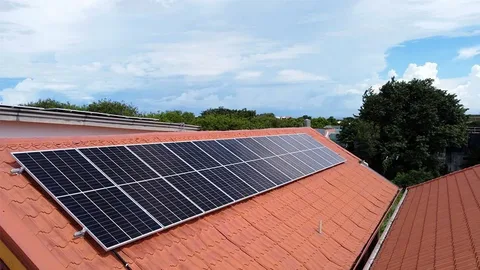As solar energy continues to gain popularity as a sustainable and cost-effective energy solution, many homeowners and businesses face an important choice: Off-Grid vs On-Grid Solar Power Systems: What’s the Difference? Understanding these two types of solar setups is crucial in selecting the right system that fits your energy needs and lifestyle.
What is an On-Grid Solar Power System?
An on-grid solar power system, also known as a grid-tied or grid-connected system, is directly connected to the public electricity grid. This means that during the day, when your solar panels generate excess electricity, it can be sent back to the grid. Conversely, when your solar panels don’t produce enough power—such as at night—you can draw electricity from the grid.
Advantages of On-Grid Systems
- Cost-Effective: Typically, on-grid systems are less expensive to install because they don’t require expensive battery storage.
- Net Metering: Many utility companies offer net metering programs, allowing users to earn credits for surplus energy sent back to the grid.
- Reliable Power Supply: Being connected to the grid means you always have access to power, regardless of solar generation.
What is an Off-Grid Solar Power System?
In contrast, an off-grid solar power system operates independently from the public electricity grid. These systems rely heavily on battery storage to store the energy generated during the day for use during nighttime or cloudy periods.
Advantages of Off-Grid Systems
- Energy Independence: Off-grid systems provide complete energy autonomy, ideal for remote locations without reliable grid access.
- No Electricity Bills: Since you are not connected to the grid, there are no utility bills.
- Backup During Outages: Because they rely on stored energy, off-grid systems are immune to grid outages.
Off-Grid vs On-Grid Solar Power Systems: What’s the Difference in Practical Use?
The core difference between off-grid and on-grid systems lies in their interaction with the public electricity grid. While on-grid solar power systems allow for energy exchange with the grid, off-grid systems require careful planning and adequate battery storage to ensure consistent power supply.
Cost Considerations
On-grid systems generally have lower upfront costs but depend on the grid for backup power. Off-grid systems require higher initial investment due to batteries and backup equipment but provide greater energy freedom.
Suitability
- On-Grid: Best suited for urban and suburban homes with reliable grid access.
- Off-Grid: Ideal for remote locations, cabins, or anyone seeking full energy independence.
Conclusion
Choosing between off-grid vs on-grid solar power systems: what’s the difference comes down to your energy needs, location, and budget. On-grid systems are cost-effective and simple for homes connected to the grid, while off-grid systems offer autonomy and security at a higher initial cost. Understanding these distinctions will help you make an informed decision and maximize the benefits of solar energy.


